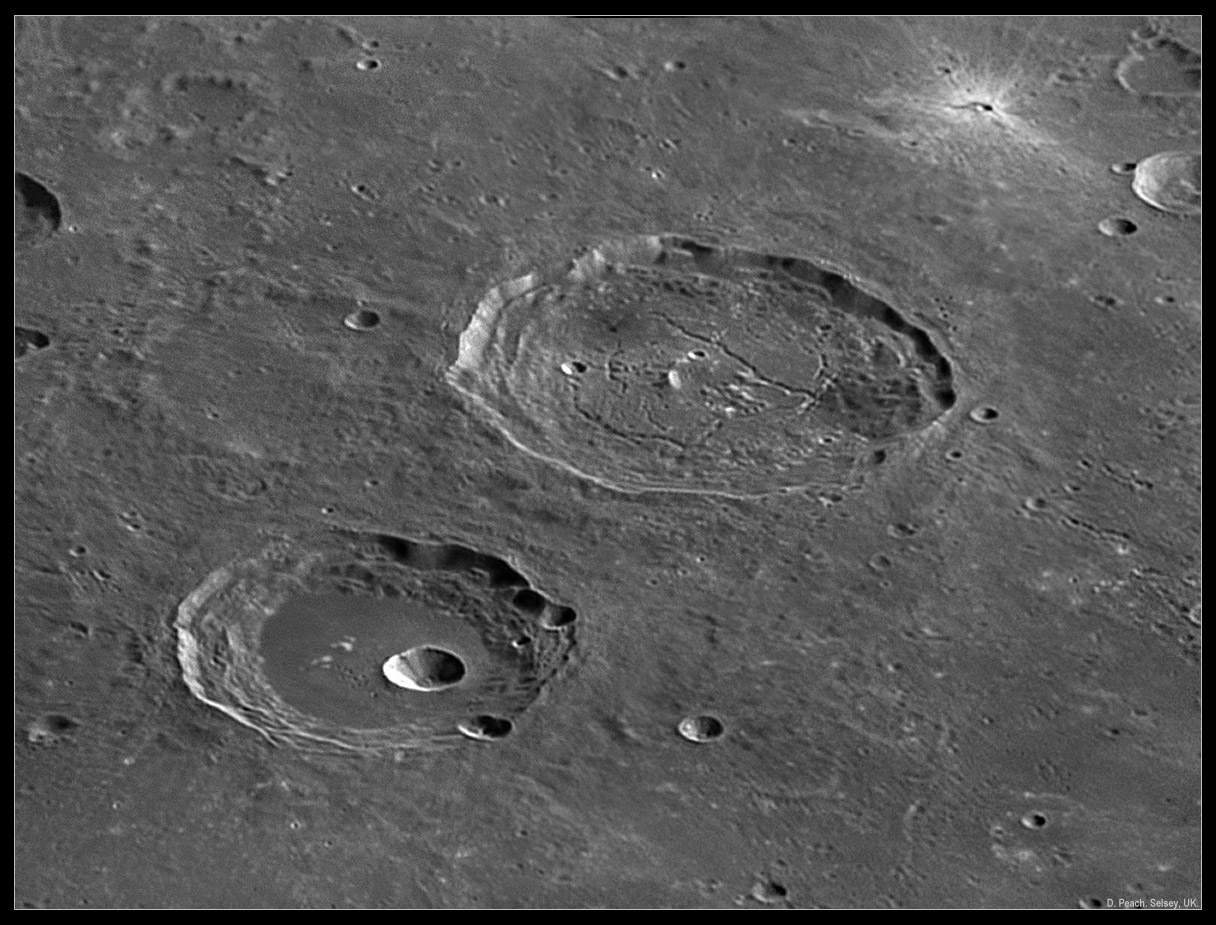December 8, 2020
Ignoring the Heroes
Originally published May 21, 2011

image by Damian Peach
Did you know Hercules G - the crater on the lava-covered floor of Hercules - was a banded crater?
I didn't either until I saw Damian's great image. Being banded is not exceptional, and looking at
earlier images I found that it was captured previously in a wonderful high Sun view, but I never
noticed it before. The rim of G seems low just where the dark band reaches it, and if you look carefully (or take the image into Photoshop and jack up the brightness) you will see that the bright band
of ejecta surrounding the crater is widest towards the north. Enlarge the high-Sun LRO mosaic and
you will see that the bright area corresponds exactly to the distribution of G's secondary craters.
I suppose that G formed as an oblique impact. The two craters on the walls of Hercules were probably
standard near-vertical impacts, but because they occurred on inward-sloping walls the craters were
elongated in the downhill direction. Finally, notice Hercules D, the fresh, small-floored crater to the
right of Hercules. It has a bright, round protuberance high on its north wall. The Clementine view is
not as dramatic as Damian's, but suggests the bright feature is a huge outcrop of the existing country
rock exposed by the excavation of the crater.
Chuck Wood
Note: Oh yes, for Danny, there is a small bright rayed, oblique impact crater above Atlas.
Technical Details
May 10, 2011, 19:44 UT. C14.
Related Links
Rükl plate 14
Damian's website
Yesterday's LPOD: Page One of a Lunar Alphabet Book
Tomorrow's LPOD: Our Daily Moon
COMMENTS?
Register, Log in, and join in the comments.



